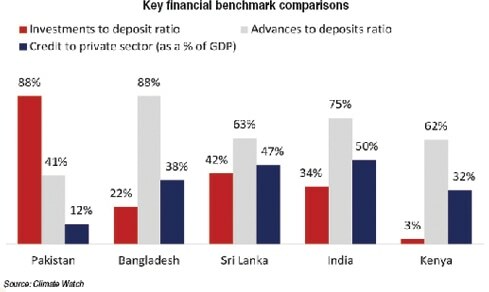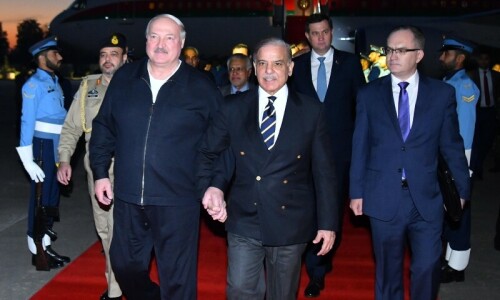ISLAMABAD, Dec 13: The United States is waiting for lifting of emergency and restoration of constitution to finalise some important pending issues, said a US official. “As soon as emergency is lifted and constitution is restored, the Bush administration would start finalising various issues with Pakistan, including Free Trade Agreement (FTA), Bilateral Investment Treaty (BIT) and the setting up of Reconstruction Opportunity Zones (ROZs) in Azad Kashmir and Federally-Administered Tribal Areas (Fata),” a US embassy spokesperson, Ms Elizabeth Colton, told Dawn.
She dispelled the impression that the United States was no more interested in the signing of the FTA with Pakistan and has also set harsh conditions to conclude the much-awaited BIT between the two countries.
Both the issues, Ms Colton said, were very much on the priority list of the US government and were likely to be concluded soon.
A senior official of the Board of Investment (BOI) had said recently that the United States was not keen to sign FTA with Pakistan. The US side, he had said, believed that Pakistan’s socio-political fundamentals were not right for FTA.
Responding to a question, the spokesperson said the BIT would be signed first and in a way it has been linked to FTA.
Both the issues, she pointed out, had been discussed at various levels and much of the progress achieved to conclude them as early as possible.
Similarly, she said the issue of ROZs was likely to be finalised by the Congress after the Christmas holidays.
Informed sources said the government has reservations to accept strict conditionalities attached by the Americans for the signing of the BIT.
“The kind of concessions, they (Americans) are seeking from us to sign the BIT cannot be given,” a source said.
He said if these concessions were offered to the United States under BIT, the same will have to be offered to 48 other countries with whom Pakistan had signed this treaty previously.
To a question, a source said the issue of BIT was with the attorney-general of Pakistan and since he was too busy in other matters, Islamabad could not reply to Washington.
The US side, he said, had finally given its mind for signing of the BIT, but since there involved some legal issues, Pakistan government was consulting its legal experts, including the attorney general.
Some of the conditions, he said, were simply unacceptable to Pakistan for which the issue was yet to be further discussed and concluded. But he did not like to divulge the legal issues concerning the treaty.
Earlier, Pakistan had asked the United States to make BIT a part of the proposed FTA instead of signing them separately in order to remove persisting differences between the two sides over the issue.
So far, sources said, both the governments have failed to remove differences over BIT, particularly because of the United States which kept on seeking unprecedented protection of American investment in Pakistan.
Pakistan had been proposing to the US to sign FTA in line with the agreements earlier it signed with a number of countries, including Qatar, Oman, Bahrain, Singapore and a couple of South American countries.
Pakistan has proposed that FTA should have certain portion of investment rather than having a full-fledged BIT keeping in view the hardened position taken by both the sides over the issue.
According to sources, both sides were not willing to soften their stand over BIT although US had earlier accepted that the “judicial and legislative actions” of Pakistan should not be allowed to be challenged in any international court of law.Pakistan had also subdued to American pressure to accept additional forums other than International Centre for Settlement of Disputes (ICSD) to deal with arbitration clauses. The US side maintained that since a number of rules of ICSD were needed to be upgraded, other centres for dispute resolution should also be considered. The US side was insisting on having more than one international forum to settle investors disputes, while Pakistan wanted only the ICSD.
Also, Pakistan wanted the US investors to exhaust the local remedy in Pakistani courts before opting for any international forum in case of any dispute.
Pakistan had also argued that there would be a wastage of time and money to also approach other dispute resolution centres and believed the ICSD alone be approached in case of any dispute.
The US Assistant Secretary of State for South Asian and Central Asia Mr Boucher when visited Pakistan last, had said that there were some “serious technical problems” which were blocking the signing of the treaty.
A source said Pakistan had been asking the US officials to change their draft law on BIT for signing of the proposed treaty.












































Dear visitor, the comments section is undergoing an overhaul and will return soon.